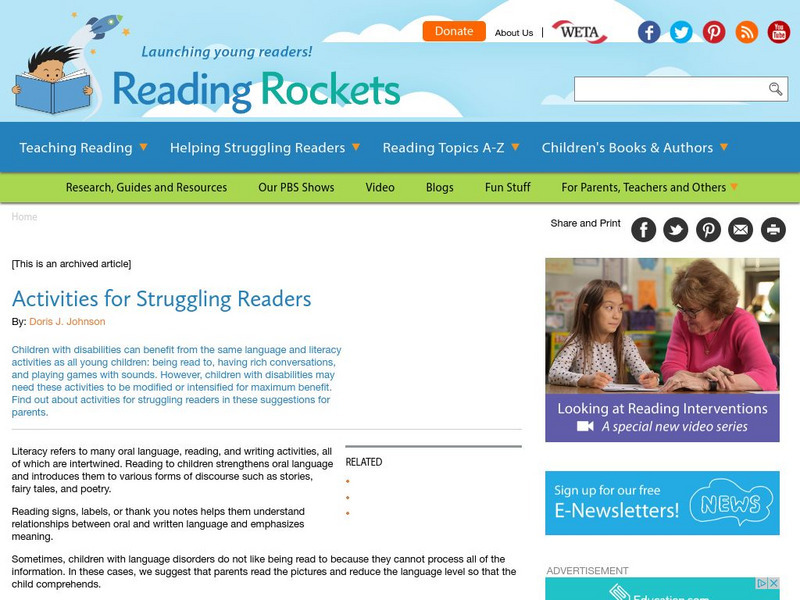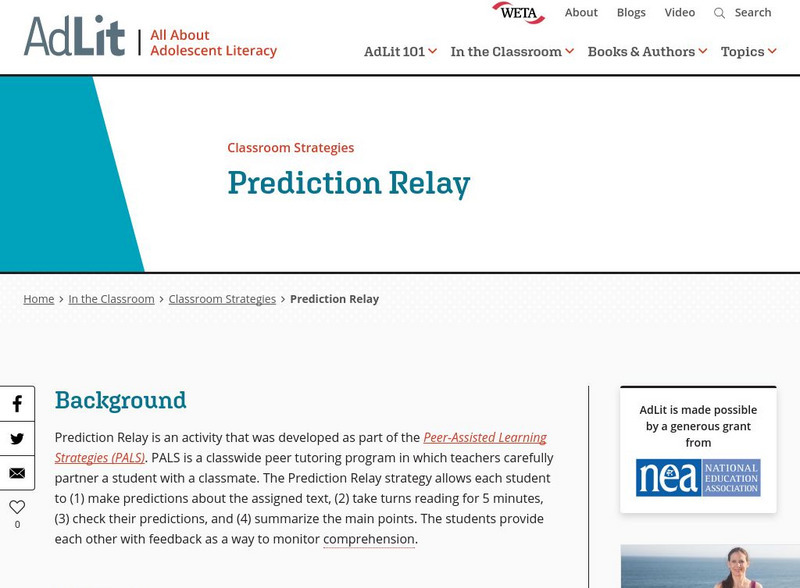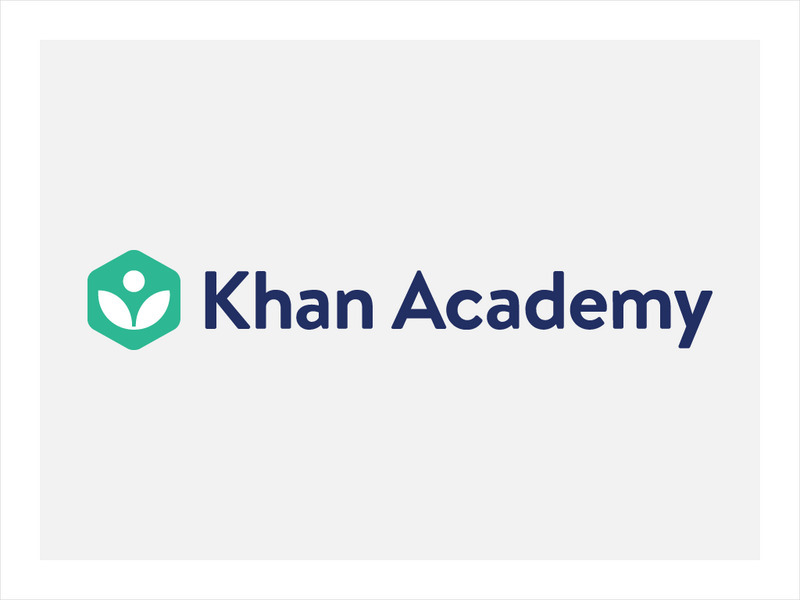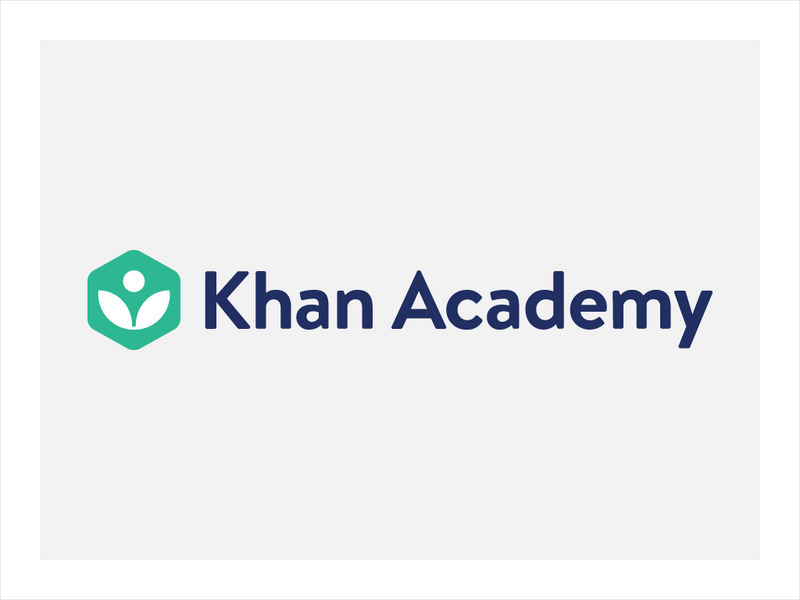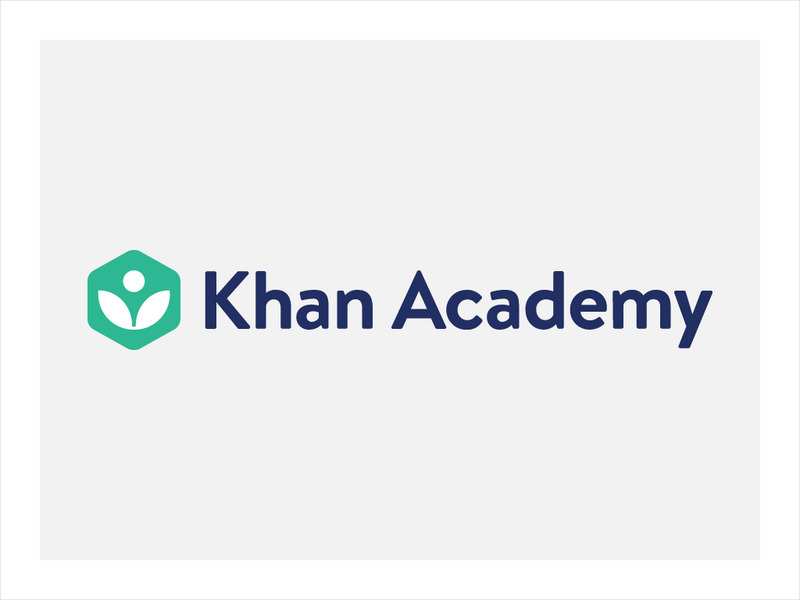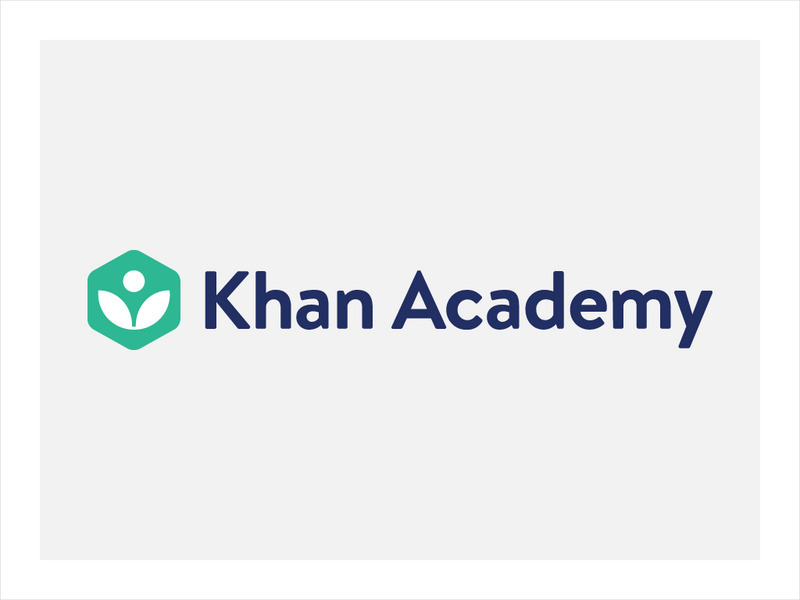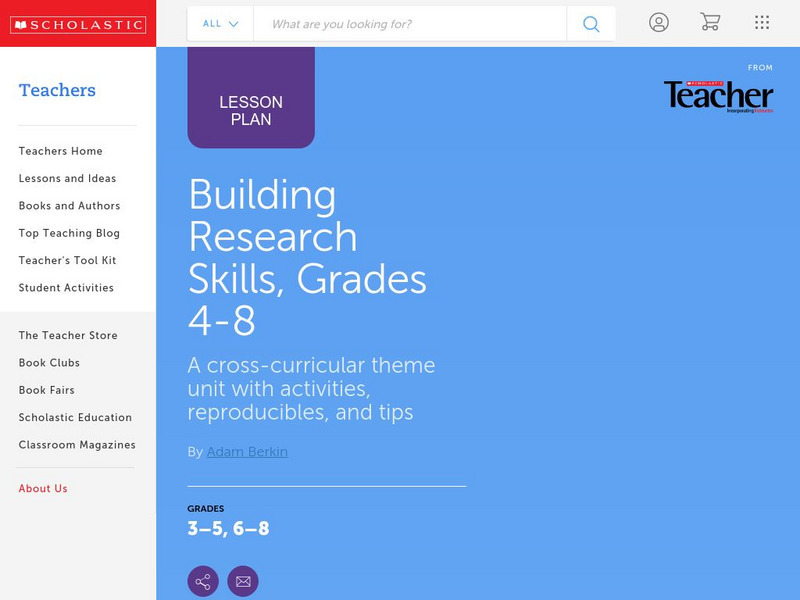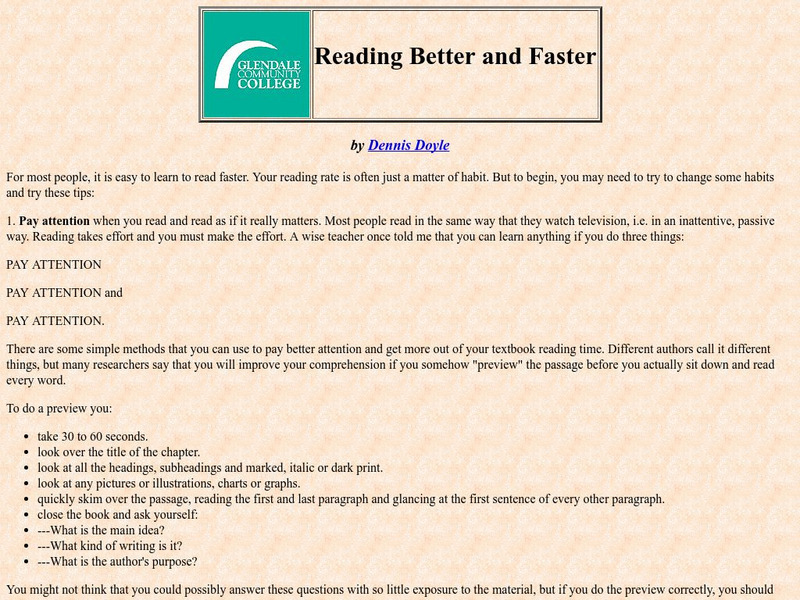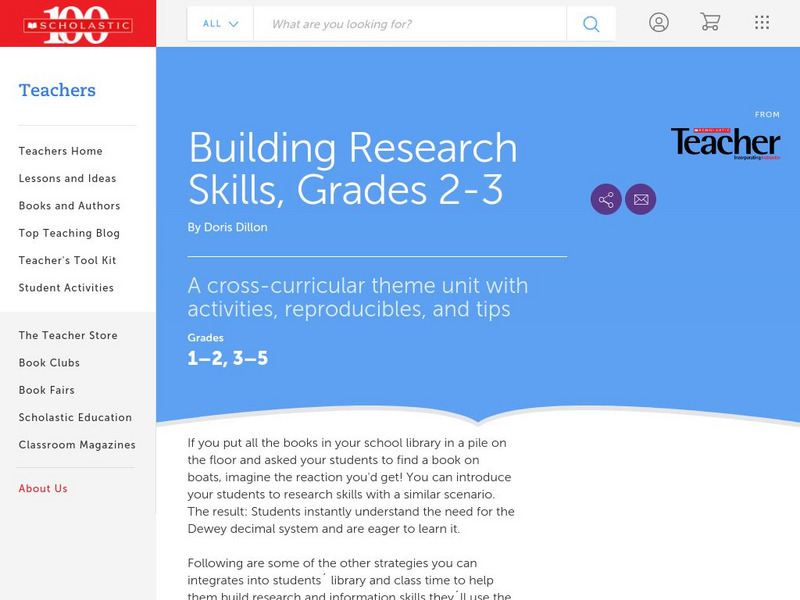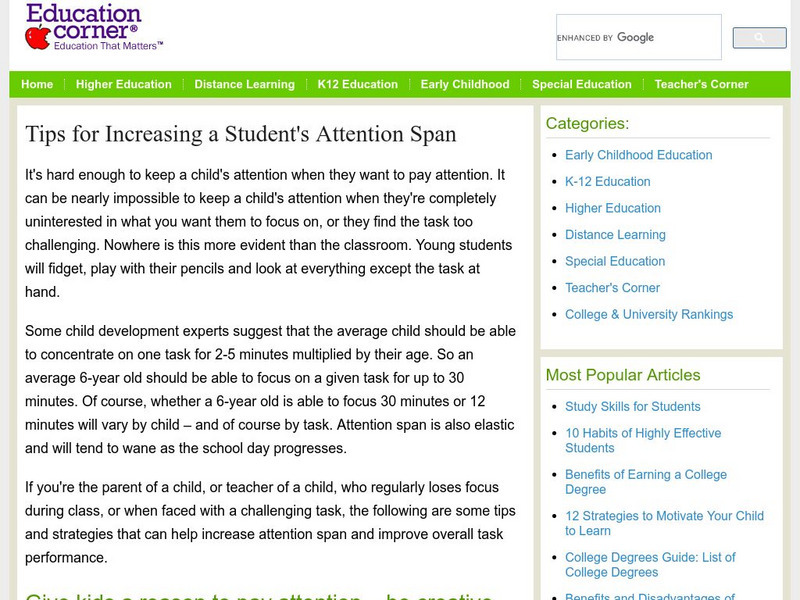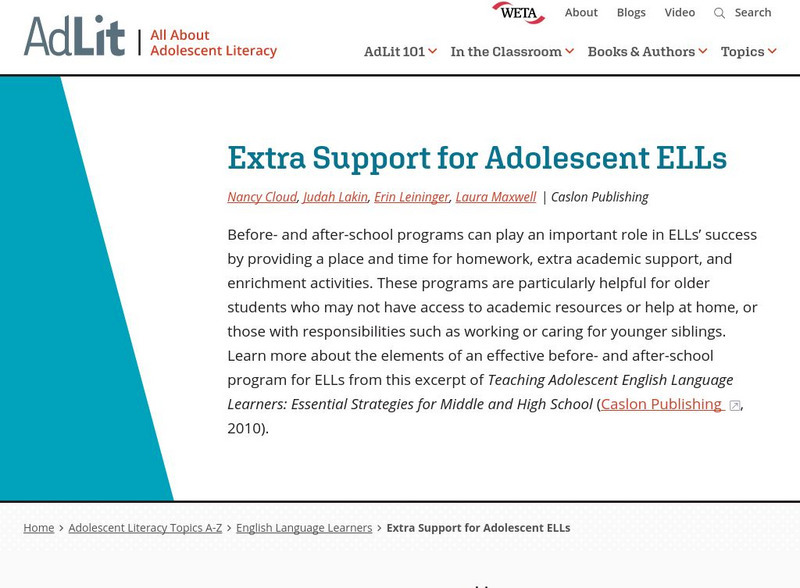Khan Academy
Khan Academy: Mistakes Can Be Good if We Learn From Them!
Mistakes are a natural part of the learning process, and how we react to them can be either harmful or helpful. Listen as kids discuss their experiences with mistakes.
Reading Rockets
Reading Rockets: Activities for Struggling Readers
How can you help the struggling readers in your classroom? This site offers some insight into activities to help develop your students reading skills.
AdLit
Ad lit.org: Classroom Strategies: Prediction Relay
Prediction Relay is an activity that was developed as part of the Peer-Assisted Learning Strategies (PALS). PALS is a classwide peer tutoring program in which teachers carefully partner a student with a classmate. The Prediction Relay...
Other
Roots of Action: How Kids Learn to Take Initiative and Overcome Challenges
Learning to take initiative is a behavior that helps kids navigate their lives with courage and optimism. This article provides insights into how children learn to take initiative. Parents and teachers are key mentors in the process. A...
Khan Academy
Khan Academy: Exercising My Brain
This article gives some examples of how your brain grows when you learn new things.
Khan Academy
Khan Academy: Mistakes Can Be Harmful Too
This article explains three common ways we allow mistakes to hurt our learning process.
Other
Digital Directions: Digital Tools Expand Options for Personalized Learning
The picture says it all! A hand-held device provides aspects of personalized learning for each student, a "personal play list of lessons, tools, and activities that deliver content in ways that align with individual and optimal learning...
Khan Academy
Khan Academy: Reflect: Keep Going. Keep Growing
Not all strategies for overcoming frustration work for everyone. You have to find out which strategies work best for you! Use the reflection questions below to develop your own plan to keep going, keep growing when you get frustrated.
Other
Big Life Journal: How to Teach Problem Solving Skills to Kids (Ages 3 14)
How you teach problem-solving to kids depends on their age. Read on to learn key strategies for teaching problem-solving to kids, as well as some age-by-age ideas and activities.
Khan Academy
Khan Academy: Reflect: Mistakes Are Opportunities
This article describes three types of mistakes and some strategies for transforming them into opportunities to grow your brain. Reflection questions are included.
Khan Academy
Khan Academy: How Do I Deal With Frustration in a Positive Way?
Working through our frustration can help us grow our brains and it's also perfectly normal to get frustrated! This article explains four suggested steps for dealing with frustration.
Khan Academy
Khan Academy: Transform My Mistakes and Grow!
To come up with a plan on how to transform our mistakes into opportunities to grow our brains, this article explains three categories of mistakes and how you can overcome them.
Scholastic
Scholastic: Building Research Skills, Grades 4 8
Students in Grades 4 through 8 will benefit from these research skills activities. This resource provides several learning activities and tips. CCSS.ELA-Literacy.WHST.6-8.7 Conduct short research projects
Other
Gcc: Reading Better and Faster
Tutorial site for students that teaches them strategies so they can read faster. This then makes the student a more effective reader.
Scholastic
Scholastic Instructor: Building Research Skills 2 3
Check out this site to learn more about building research skills for grades 2-3. This site offers suggestions for activities that will sharpen your abilities.
Other
Education Corner: Tips for Increasing a Student's Attention Span
This article lists tips and strategies that can help increase attention span and improve overall task performance in the classroom.
Reading Rockets
Reading Rockets: The Foundations for Reading
What are the foundations for reading? Come and explore this informative article to discover the answer to this question.
AdLit
Ad lit.org: Extra Support for Adolescent El Ls
Before- and after-school programs can play an important role in ELLs' success by providing a place and time for homework, extra academic support, and enrichment activities. These programs are particularly helpful for older students who...

